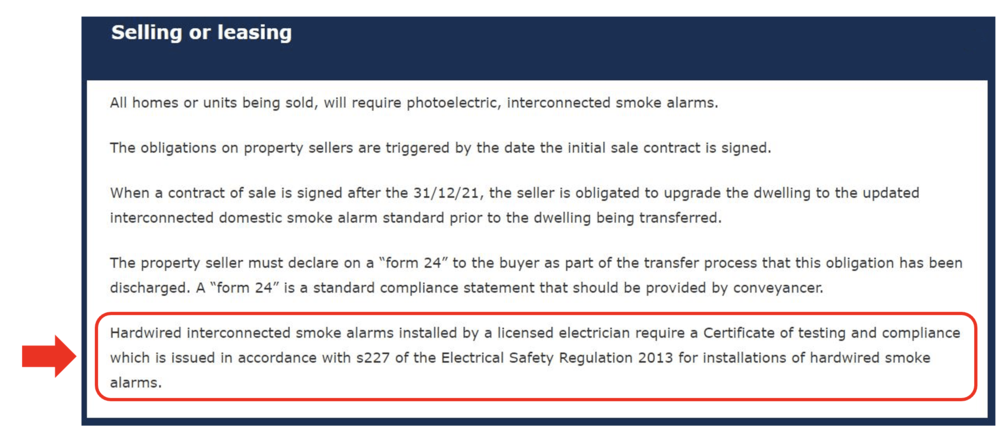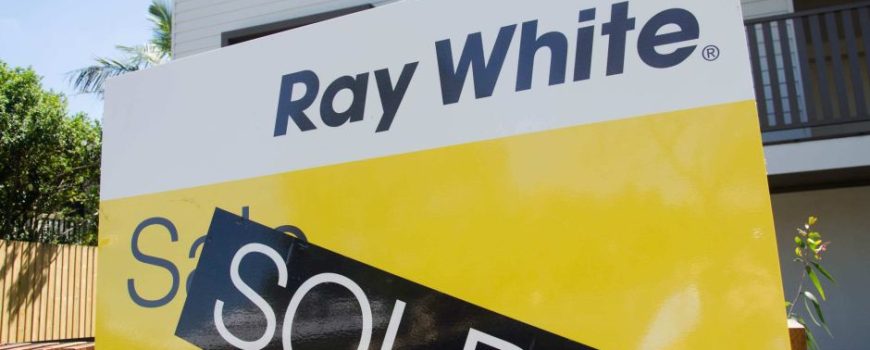f you’re selling a property in Queensland, you might be wondering whether you need to supply a smoke alarm compliance certificate QLD to finalize the sale. The short answer? No—there is no legal requirement to provide a smoke alarm compliance certificate QLD for wireless 10-year battery-powered smoke alarms. However, certain requirements must still be met to ensure compliance with Queensland’s smoke alarm laws.
Smoke Alarm Compliance Certificate QLD and
Wireless 10-Year Battery-Powered Smoke Alarms
If your property is equipped with wireless, 10-year battery-powered smoke alarms, you do NOT need to provide a smoke alarm compliance certificate QLD when selling.
According to the Real Estate Institute of Queensland (REIQ), the seller is not obligated to supply a compliance certificate for these types of alarms. Their fact sheet confirms that there is no requirement for a compliance certificate to be issued by an electrician or any other authority when selling a property with wireless 10-year battery powered smoke alarms – see below.

Smoke alarm compliance certificate QLD and the REIQ fact sheet
However, just because a smoke alarm compliance certificate QLD is not required doesn’t mean you can ignore smoke alarm laws. As the seller, you must meet your obligations and ensure that your property has compliant, interconnected photoelectric smoke alarms installed in all legally required locations.
Once this is done, you must then disclose in writing to the buyer that the property complies with the smoke alarm legislation. This disclosure is completed through two documents:
- Form 24 – QLD Transfer of Title Form
- Contract of Sale
By completing these documents, the seller confirms that the property meets Queensland’s smoke alarm regulations, ensuring a smooth transaction for both parties.
The ‘Form 24’ (QLD Transfer of Title Form) – Section 5 (g)

The Contract Of Sale

Smoke Alarm Compliance Certificate QLD
and 240V Hardwired Smoke Alarms
While wireless 10-year battery-powered smoke alarms do not require a compliance certificate, hardwired 240V interconnected smoke alarms do.
The Queensland Fire Department state on their website that when selling a property with 240V hardwired smoke alarms, a Certificate of Testing and Compliance is required (see below). This certificate is issued by a licensed electrician and serves as proof that the hardwired smoke alarms are electrically safe.

QLD Fire Department website – hardwired smoke alarm compliance certificate QLD
If your property has 240V hardwired smoke alarms, you must arrange for a licensed electrician to conduct an inspection and provide this certificate before settlement.
Why Smoke Alarm Compliance is Important in QLD
Ensuring that your property meets Queensland’s smoke alarm laws is crucial, not just for legal compliance but for the safety of future occupants. Smoke alarms play a vital role in detecting fires early, reducing fatalities, and protecting lives and property.
Smoke Alarm Requirements for Queensland Homes
From 1 January 2022, all properties sold or leased in Queensland must have interconnected photoelectric smoke alarms that comply with the Australian Standard 3786:2014. The key requirements include:
- Photoelectric smoke alarms (not ionization alarms)
- Alarms must be interconnected (when one alarm sounds, they all do)
- Must be installed inside every bedroom
- Must be installed in hallways connecting bedrooms to the rest of the house
- If there are no bedrooms, at least one alarm must be installed in the most likely path of travel to exit the property
- Hardwired 240V smoke alarms must be installed by a licensed electrician
- Wireless 10-year battery-powered smoke alarms are an approved alternative
These regulations aim to enhance fire safety in homes across Queensland and ensure compliance before a property changes ownership.
How to Ensure Your Property is Compliant
If you are planning to sell your home in Queensland, follow these steps to ensure compliance:
- Check your smoke alarms – Ensure they are photoelectric and comply with AS 3786:2014.
- Verify their location – Install alarms in all required positions (bedrooms, hallways, and exit routes).
- Ensure interconnection – When one alarm sounds, they should all activate simultaneously.
- Confirm the power source – If using 240V hardwired alarms, book a licensed electrician for an inspection and obtain the Certificate of Testing and Compliance.
- Complete the disclosure forms – Fill out Form 24 and the Contract of Sale to confirm smoke alarm compliance to the buyer.
Common Misconceptions About The
Smoke Alarm Compliance Certificate QLD
Many homeowners and real estate agents mistakenly believe that a smoke alarm compliance certificate QLD is mandatory for ALL properties. However, the truth is:
- No certificate is required for wireless 10-year battery-powered smoke alarms.
- A smoke alarm compliance certificate QLD is required only for hardwired 240V smoke alarms.
- Sellers must disclose in writing that compliant alarms have been installed, but they do not need to provide an official compliance certificate for battery-powered alarms.
Want to do some further reading? Links to all official sources in this article are provided below:
QLD Fire Department website (smoke alarm section – selling and leasing)
QLD Fire Department state that 240V hardwired interconnected smoke alarms installed by a licensed electrician require a Certificate of Testing and Compliance when selling your property.
QLD Electrical Safety Regulations 2013 (section 227)
Includes detail on what must be included in the Certificate of Testing and Compliance for 240V hardwired smoke alarms.
QLD Fire Services Act 1990 (section 148I)
States that the seller of a property must provide notice in writing to the purchaser that compliant smoke alarms are installed in all prescribed locations.
Building Fire Safety (Domestic Smoke Alarms) Legislation Amendment Regulation 2016
Lists all the prescribed locations for installation of smoke alarms as required by law. It also lists the prescribed ways of powering smoke alarms, and any additional smoke alarm compliance requirements.
Real Estate Institute of QLD (REIQ) contract FAQ fact sheet
REIQ state that the seller does not need to provide a compliance certificate to confirm the smoke alarms installed are compliant.
Provides guidance on who checks smoke alarms during the selling process, and what could happen if smoke alarms are not compliant.
Legal disclaimer: Information contained in this article is general in nature and should not be construed as legal advice. You should always seek the services of a legal professional when selling or purchasing a property.

Want to know more? Watch our ZEN Smoke Alarm YouTube channel or call us on 0478 596 402 today
We love talking smoke alarms!
ZEN Interconnected Smoke Alarms
New Farm, QLD, 4005

